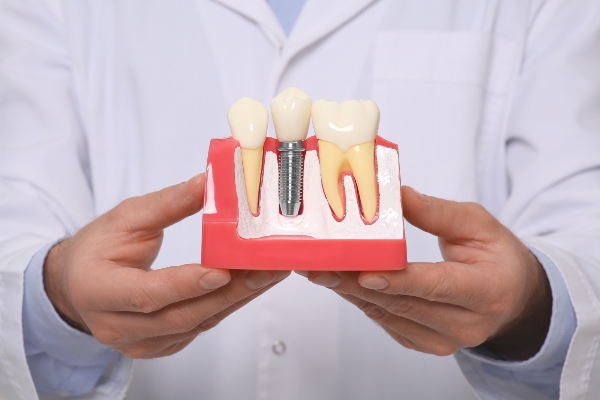General Dentist vs. Specialist: What’s the Difference?

Dentistry encompasses a broad range of skills and areas of focus designed to maintain or improve oral health. General dentists are the most commonly thought of practitioners, and rightfully so, with many seeing them at least twice a year. However, there are a host of dental specialists that individuals may need to encounter at some point in their lives. While every dentist is committed to providing quality care, it is important to know who to consult in order to shorten your chair time and receive the necessary care the first time.
General dentists' vs. specialists' educational background and training
Dental professionals complete extensive academic programs to acquire the foundational skills necessary to provide oral health services. This begins with an undergraduate degree, followed by a doctoral-level program at an accredited dental school. Upon graduation, a general dentist has the knowledge, credentials, and hands-on training to perform a wide range of procedures.
Dental specialists, on the other hand, undergo additional training and residency programs, often spanning two to four years beyond dental school. This additional education grants them deeper expertise in specific areas of dentistry. Dental specialties include orthodontics, endodontics, periodontics, pediatric dentists, oral and maxillofacial surgery, and prosthodontics. Each of these specialties addresses focused areas of oral health, such as gum disease, tooth alignment, or surgical procedures involving the jaw.
Services and treatments
A general dentist provides a comprehensive array of services designed to maintain overall oral health. Routine checkups, dental cleanings, fillings, x-rays, and basic restorative procedures are typically available through a general dentist's practice. Preventative services, including exams and cleanings, focus on maintaining healthy teeth and gums, while restorative treatments address issues like cavities or minor cosmetic concerns. A general dentist may also offer limited orthodontics or cosmetic procedures, such as teeth whitening or basic tooth alignment treatments, depending on the scope of practice.
A specialist concentrates on complex or advanced treatments that require in-depth knowledge and specialized training. For instance, an orthodontist specializes in correcting bite issues and realigning the jaws and teeth, while a periodontist diagnoses and treats gum disease at advanced stages. An endodontist addresses issues related to the tooth's internal structures, performing root canal treatments and other intricate procedures. When a patient's needs surpass the general dentist's usual scope of practice, the dentist may refer that individual to the appropriate specialist.
When to visit a general dentist
Individuals wanting to maintain good oral health benefit from scheduling routine visits with a general dentist. This dental practitioner is well-equipped to detect early signs of tooth decay, gum disease, or other potential concerns and recommend effective treatments. Regular checkups with a general dentist play a vital role in preventing larger problems and protecting oral health.
A general dentist is also suitable for handling common dental issues, such as fillings for small cavities, basic cosmetic enhancements, and the occasional tooth extraction. Many patients develop a long-term relationship with their general dentist, allowing the dentist to track any changes in their oral health over time and recommend a specialist consultation if necessary.
When to visit a dental specialist
Some situations demand the focused expertise of a specialist. Orthodontic issues, such as severe misalignments of teeth or jaws, typically require the care of an orthodontist. Advanced gum disease or complex bone graft procedures may necessitate a periodontist's attention. If a tooth infection affects the root canal or the tooth's internal structure, an endodontist is the most suitable choice. Oral surgeons address facial trauma, reconstructive surgery, or impacted wisdom teeth that require deeper surgical intervention.
Often, the referral process begins with a general dentist, who evaluates the individual's needs and determines whether specialized care is warranted. The specialist then devises a treatment to address the specific issue the patient is living with, often working collaboratively with the general dentist to ensure comprehensive care.
Choosing the right dental professional
Making informed decisions often depends on the complexity of the dental concern. If a person experiences discomfort during a routine examination or if the dentist observes issues, the next step may involve visiting a specialist. However, a general dentist is typically sufficient for ongoing prevention, maintenance, or minor treatments. Establishing a relationship with a dependable general dentist is crucial for patients of all ages.
Schedule a consultation at Rivers Family Dentistry
The main difference between a general dentist and a specialist lies in the breadth versus depth of their training and practice. Are you interested in checking on your oral health, or are you still unsure who to consult about a specific concern? Contact Rivers Family Dentistry to schedule a consultation. Our general dentist can curate a treatment plan for you or point you in the right direction.
Request an appointment here: https://www.riversdentistry.com or call Rivers Family Dentistry at (979) 710-2216 for an appointment in our Bryan office.
Check out what others are saying about our dental services on Yelp: General Dentist in Bryan, TX.
Related Posts
Rivers Family Dentistry is proud to be a premier dentist near Traditions and the surrounding 77807 area, serving the families who live, work, and play in one of Bryan’s most vibrant and prestigious communities. Whether you are spending a Saturday morning at the Traditions Club playing golf, enjoying the scenic trails near Lake Walk, or…
Looking for a dentist near me in Austin’s Colony? Rivers Family Dentistry has been a proud neighbor in the Bryan community for years, and we’re here to help you and your family smile with confidence. We love being part of this vibrant Bryan neighborhood, in 77808, located just a stone’s throw away from local landmarks…
A general dentist plays an essential role in maintaining lifelong oral health by providing preventive, restorative, and cosmetic care for patients of all ages. While specialists focus on particular aspects of dentistry, a general dentist provides a wide range of services to address routine needs and detect issues early. Understanding what distinguishes a general dentist…
You can see your general dentist if you want to renew your smile. There are specific treatments that can improve your teeth and gums. At the same time, your dental functions can be better as well. Here are the cosmetic dental services that your general dentist can provide.Crooked teeth can distort one’s smile. This problem…


